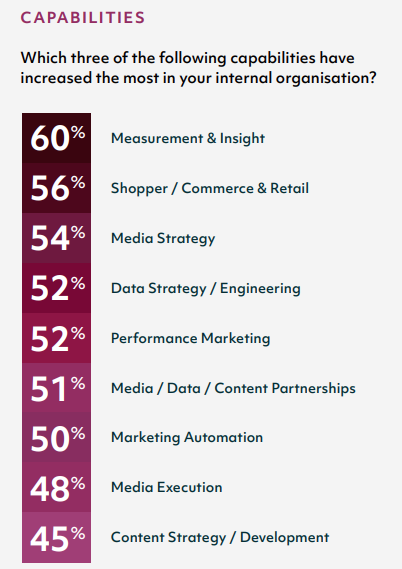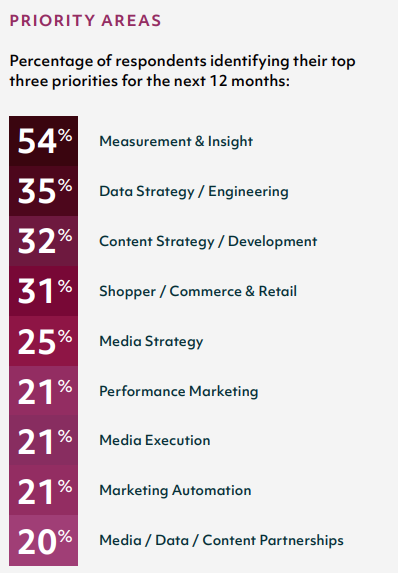MediaSense reveals ‘biggest blocker’ to business transformation

Nearly three-quarters of senior marketers believe their organisational structure is holding them back from business transformation, according to new research.
Global media advisor MediaSense’s Media 2025 research found 71% of senior marketing professionals believed organisational structure was “the biggest blocker to transformation”.
This was felt “even more keenly” by those in global roles, with 78% citing it as an obstacle to “successful transformation”, compared with those with local positions (at 44%).
Other blockers include capability/skillsets (57%), leadership/vision (49%), budget management (40%), execution (23%), external factors (17%) and planning (16%).
Recurring theme
Ryan Kangisser, managing partner at MediaSense, said transformation has been “a recurring theme” of this wave of the research programme, with many marketing organisations now becoming more customer-centric, integrated and agile.
He added: “However, a number of deep-rooted challenges are to be overcome, with organisational structure, capability and measurement among the most acute.
“It is otherwise pleasing to see the positive role envisioned for agencies, which are set to become more stable and strategic with marketers who have completed their transformation programmes.”
However, there is progress: 17% of global marketers said they were “at an early stage”, 68% were either “midway” or “towards the end” and 12% stated they were “towards the end or had completed” their transformation journeys.
Data-rich, ecommerce-enabled categories like retail, technology and media companies were further ahead on this journey than FMCG, auto and pharmaceuticals, MediaSense noted.
More than a quarter (26%) feel “confident” that they have generated “incremental effectiveness” as a result of their current transformation.
Silos remain
In 2024, according to MediaSense, integration is “not just a buzzword — it’s a necessity”, but internal divisions within brands and silos within agency organisations can increase frustrations and difficulties.
The study stressed: “To get over these challenges, many brands are involving their agencies more closely with their business. The quid pro quo being an expectation that their agencies mirror their structure in return and support clients where they have limited resources and knowledge. This makes the debate around in-housing much more of a collaboration than a competition.”
Most in-demand skills
MediaSense also polled marketers on talent and skills requirements, with demand for certain analytical and technical capabilities growing since the last wave of the research in 2022.
Marketers said the areas where “capability needs are greatest” were in measurement and insight (60%), followed by shopper/commerce and retail (56%) and media strategy (54%).

The report stated that “the next frontier” is the world of content strategy and development (45%), which “will be a natural extension” for those with the technical capability and ambition to deliver “more agile, personalised content”.
Meanwhile, for advertisers, the “priority areas” going forward are mainly related to measurement and insight (54%), data strategy, engineering and science (35%) and content strategy and development (32%).

Impact of AI
Also covered in the research was the anticipated impact of generative AI on organisations and marketing.
Most participants “remain broadly positive about the likely impact of AI on the workforce” and expect it to make people more productive by enabling them to do administrative tasks more quickly.
Generative AI will also “support ideation and strategic thinking”, as well as “revolutionise” production-level tasks like content adaptation, transcreation and translation.
However, AI is also seen as “a potential cure for margin erosion” by client and agency CEOs in the survey, with the potential for “a culling of administrative roles” and balancing investment in this technology with “human savings”.
Content strategy/development was the top category selected to be affected by the advance of generative AI (62%), followed by performance marketing (54%) and measurement and insight (45%).
Media 2025 is based on quantitative and qualitative research conducted from Q4 2023 to Q1 2024 among 100 senior marketers, with two-thirds at chief marketing officer or director level.
The full report is available at www.media-sense.com



